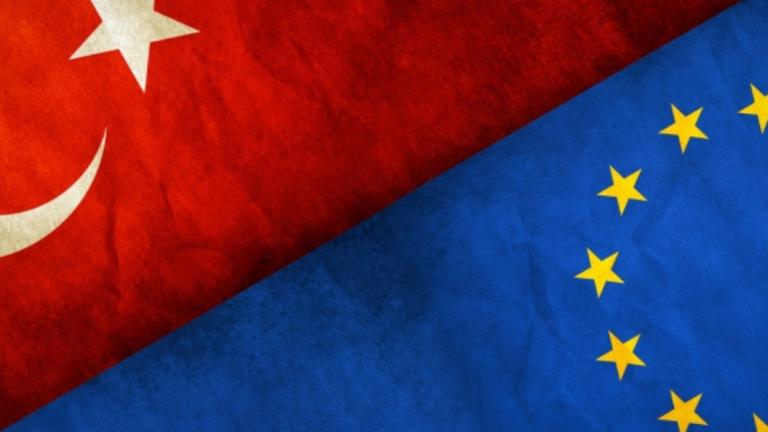
Gender Equality for Organizational Transformation, Organizational Transformation for Gender Equality
In the new implementation period of BİRLİKTE, we have included some priorities in our support. In the new period of the BİRLİKTE Program, which we see as a process of organizational transformation from individual practices to the system, from customary practices to written procedures, we have identified gender equality as one of our main lines. We have considered this as both a goal and an essential, strengthening and accelerating element of organizational transformation at all stages of the program.
Since gender equality is a fundamental element of human rights, it was naturally one of the main issues in the first period of the BİRLİKTE Program. The fact that anti-gender equality policies pose a threat not only to women's and LGBTI+ organizations but also to the civic space as a whole; that policies and practices that do not take gender dynamics into account carry the risk of limited impact not only for the public but also for civil organizations; and that there is no possibility to implement principles such as equality, transparency, participation and democratic culture in our organizations without gender equality were the main factors that made it necessary to address this issue.
During the institutional development work we carried out in the first period of BİRLİKTE, we had a wide range of experiences in which organizations questioned gender-based inequalities within themselves. Although we conducted activities in this field with BİRLİKTE participant organizations, we were aware that such partial activities had limited contribution to organizational transformation.
Gender equality should not only be a demand but also a commitment for CSOs
We believed that gender equality should not only be a demand but also a commitment for civil society organizations. For this reason, we pursued the question of how we can implement equality not only in the field we struggle for but also within the organization. With the inclusion of 25 organizations in the new period of BİRLİKTE, both we and our questions multiplied and deepened.
This learning enabled us to address the issue in a more focused and defined way in the second period of BİRLİKTE. In the first period of BİRLİKTE, organizations fighting for gender equality were distant from the institutionalization process, while organizations fighting for rights in other fields found gender equality important, but did not see it as a priority issue. As someone who has been struggling in this field for many years, but who is also a mentor in a very well-structured institutional development program such as BİRLİKTE, I can say that I experienced the first transformation in this intersection. As a feminist, I never lost faith in the power of the street, but I had the opportunity to understand that institutionalization or strategic planning is not the bogeyman.
What did we do and how did we do it?
While structuring the new period of BİRLİKTE, we proceeded based on the approach of gender equality for organizational transformation and organizational transformation for gender equality.
Despite the very justified feminist criticism of 'Gender Equality Mainstreaming '(GEM), we saw it as an effective strategy that we could use in BİRLİKTE. GEM is more of a public demand, but in recent years it has also been used for civil society's own transformation. We have integrated the mainstreaming approach and its useful tools into BİRLİKTE's unique institutional development model.
We can say that we carry out GEM activities in three parts. The first is our work at the program level. The principles of the program, the application and grant guidelines we developed, and the evaluation criteria for CSO applications were all developed with a gender equality perspective. In the evaluation process, which is an important stage of the program, we prioritized the inclusion of organizations that stand out in the field of gender equality as well as organizations that demonstrate the need for change in this direction. In the online information activities, we underlined as much as possible that this issue is the main element of the program. In this process, we tried to understand what the organizations wanted to do for gender equality not only in their working areas but also within the organization.
Another and perhaps the most important line is the mentoring work we carry out with 25 civil society organizations participating in BİRLİKTE. From the very beginning, we have been conducting GEM activities as a dimension of mentoring for organizational development. The experience of BİRLİKTE mentors in civil society and organizational capacity development, as well as their knowledge, curiosity and excitement in the field of gender equality facilitated and strengthened the process more than we could have imagined. We put a lot of thought together to carry out coordination, communication, finance, monitoring/evaluation & learning activities on the basis of gender equality.
The focus of the mentoring activities is our organizational development model and self-assessment tool, which we developed in the first period of BİRLİKTE and explained in detail in our previous article. In the self-assessment tool, we positioned gender not as a separate area such as governance, members and volunteers or resources, but as an issue that cross-cuts all areas in the tool. Thus, BİRLİKTE organizations evaluated the points that needed to be improved in terms of gender equality separately for each area and shaped their improvement plans for the first year accordingly. The improvement plans include both GE-focused improvements and notes on how they will address the GE perspective in other improvements.
Civil Society Development Center Association is our third line. STGM is an organization where many gender equality activists take part in different roles such as members, employees and board members. Gender equality is an issue that has been on STGM's agenda for many years.
In 2010, a book written by İlknur Üstün and edited by Aksu Bora titled "Gender Equality: Can We Take it into Account?" is a publication of a study in which STGM's activities and functioning are comprehensively evaluated with a focus on gender. With this publication, we understand that STGM started a self-assessment process with a focus on gender equality about 15 years ago. Although STGM has defined and implemented various practices in this field in its institutional documents, we have diversified and accelerated our work in this direction with the BİRLİKTE Program, saying that there is always more for gender equality. In addition, in order to make these efforts more comprehensive, effective and sustainable, we decided to create a gender equality group that includes STGM's board of directors, members and employees. In this respect, it would not be wrong to say that STGM has become the 26th organization in the BİRLİKTE Program that learns by sharing, not knowing and teaching.
Gender equality for organizational transformation organizational transformation for gender equality
We endeavor to support our work on GEM through various activities and mechanisms. We think about this issue together with participating CSOs and discuss the tools and documents developed together. For living and transforming gender equality policy documents, we evaluate how the practices and mechanisms defined in the documents will be included in which institutional document. We make use of STGM's pool of experts for the specific expertise that CSOs need in their gender equality work, and we mediate the meeting of organizations and experts. We meet and share our knowledge and experiences in face-to-face events and online events where we prioritize organizational mechanisms for gender-based complaints and intersectional discrimination. We share important and up-to-date resources and events on the subject at the digital meeting point (BİRLİKTE Hub) open to BİRLİKTE participant CSOs. We organize various events in Ireland and Turkey with the Wheel, the partner of our program in Ireland.
To share experiences and knowledge: BİRLİKTE Initiative for Gender Equality
In the context of GEM work, we should also make special mention of the BİRLİKTE Initiative for Gender Equality. The Gender Equality Mainstreaming Initiative, abbreviated as GEMI in the program, was formed with the participation of activists from BİRLİKTE participating organizations. We can say that it is a BİRLİKTE formation that is eager to devote its knowledge and time for gender equality in civil society. We can already foresee that the contribution of the information, documents and tools that the initiative, which recently held its first meeting and will soon come together again to formulate its work program, will go far beyond BİRLİKTE organizations.
It is exciting just to think about the contribution that these structured and comprehensive studies carried out by 25 civil society organizations focusing on different areas of rights on the basis of gender equality will make to the struggle for gender equality. We will continue to share with you what we learn as time progresses. However, I will end this article with the good news that we will hand over the floor to the real owner of TCEA's work, GEMI.

STGM Studio
We have good news for CSOs that want to produce video content. In our studio in our office, you can shoot your videos and get editing support.




